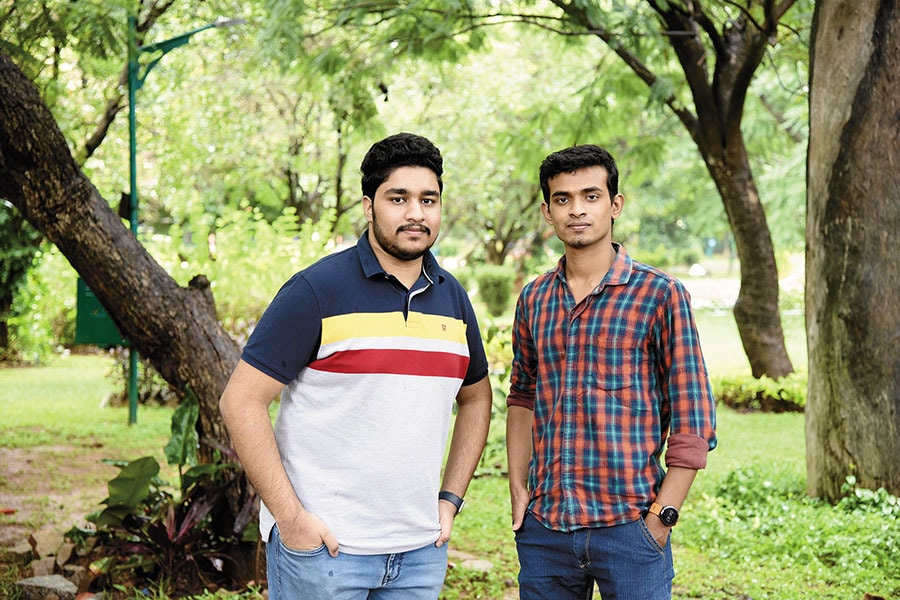
These teenpreneurs are making wildlife conservation cost effective
Akarsh Shroff and Rakshak Gowda's Grey Night is marrying space technology and wildlife conservation to save endangered species.

Through their company Grey Night, Akarsh Shroff (left) and Rakshak Gowda are planning to cater to wildlife conservation organisations that need migration data of species
Image: Hemant Mishra for Forbes India
Climate change has caused the extinction rate of species to increase 1,000x as compared to the natural extinction rate. Due to this, the migration patterns of a lot of avian and marine species have been affected, which means they are more susceptible to predation and their reproduction is also affected. As a result, their numbers start to dwindle, and they move into the endangered category before becoming extinct.
In an attempt to help solve this problem, teenagers Akarsh Shroff and Rakshak Gowda came up with a Femto-satellites based wildlife monitoring system, to help conservationists and research organisations collect data about the migration patterns of species via biotagging. “Though there are existing systems like ICARUS and ARGOS, the problem is they cannot track various smaller avian species and some deep sea marine species since these have an extended handshaking period [time it takes to exchange signals between the transmitter (biotag) and receiver (satellite)] and the size of the biotag is large,” says Gowda.
They started work on the system in 2019 and set up a company, Grey Night, in July 2020. The duo is building a network of 17 Femto-satellites (miniaturised satellites that weigh less than 100 grams) to be launched in a low Earth orbit (satellites with orbital altitude under 1,000 km). Shroff explains, “With our patent pending technology, we will be able to reduce tracking costs, decrease the transmission energy, have lower handshaking periods and will be able to track deep-sea marine species as well, since our biotags will be smaller.
(This story appears in the 30 November, -0001 issue of Forbes India. To visit our Archives, click here.)








